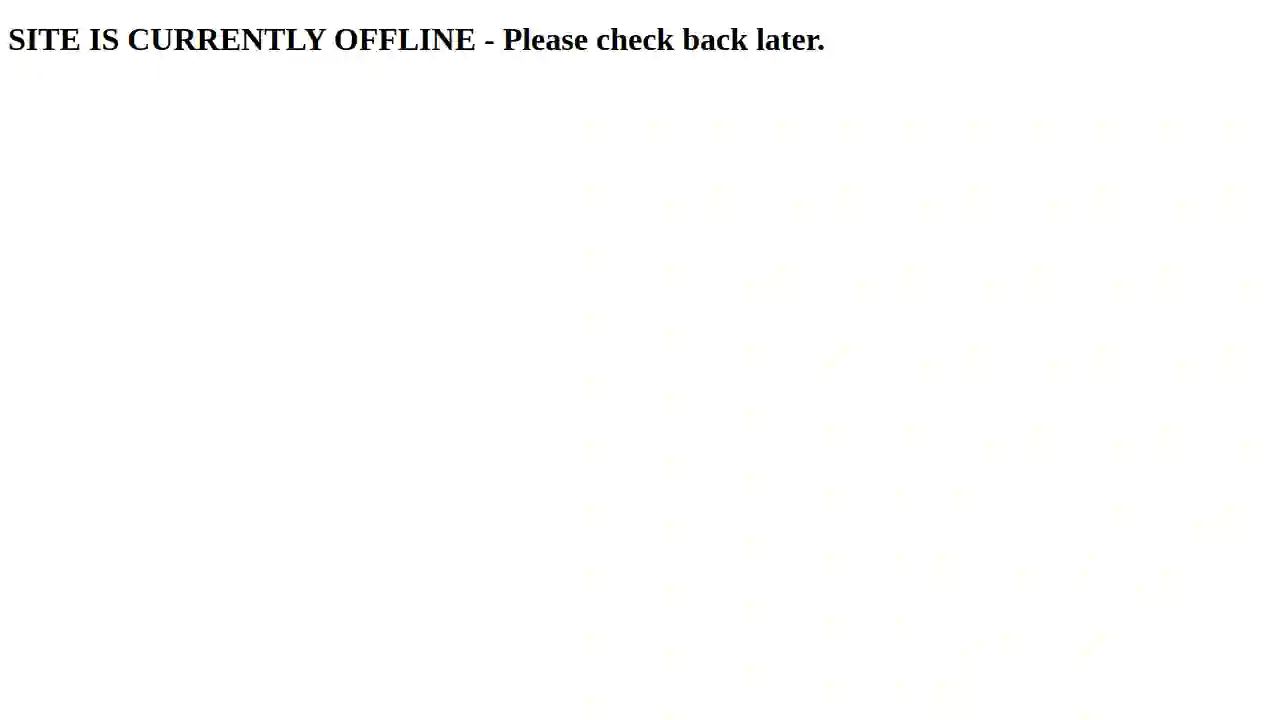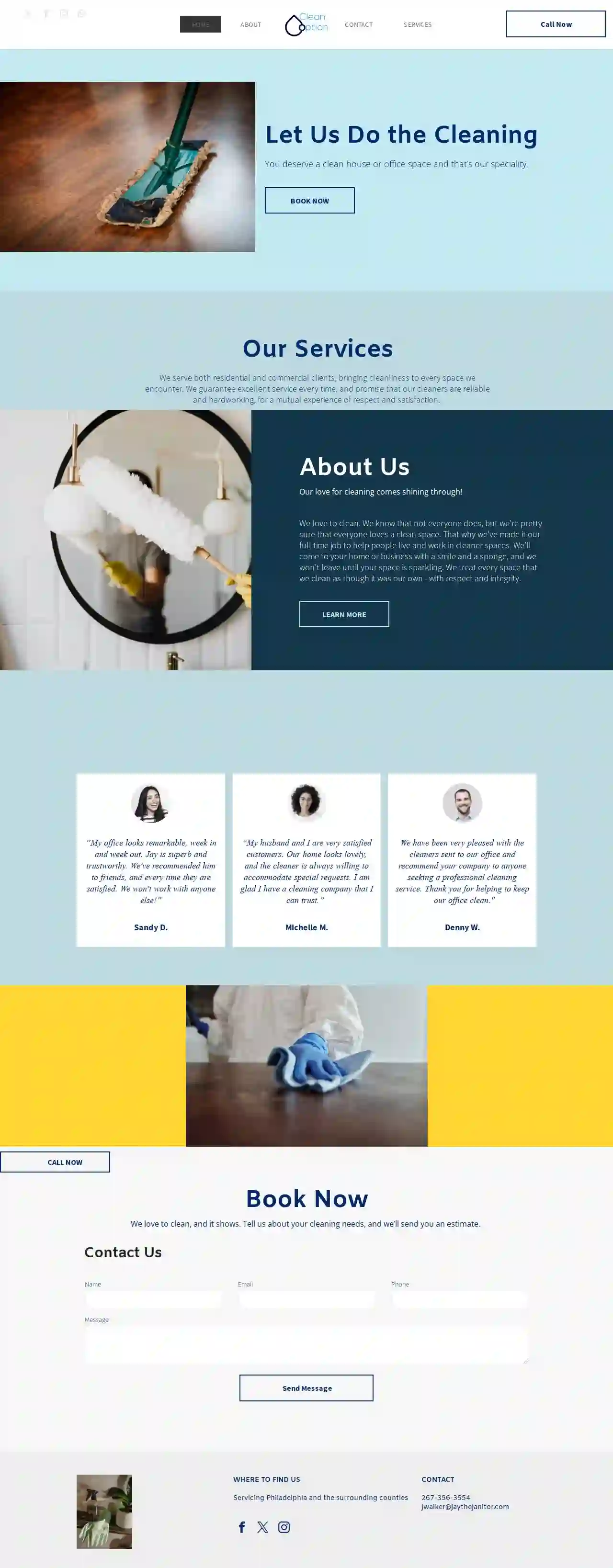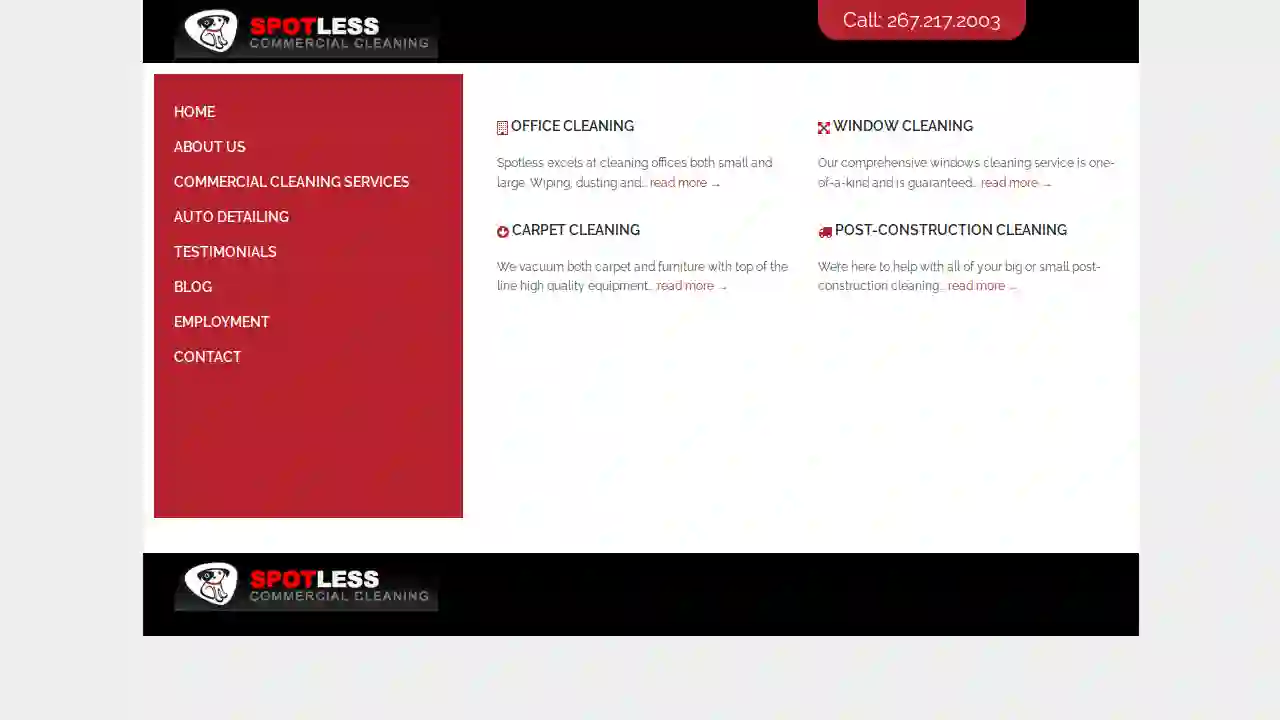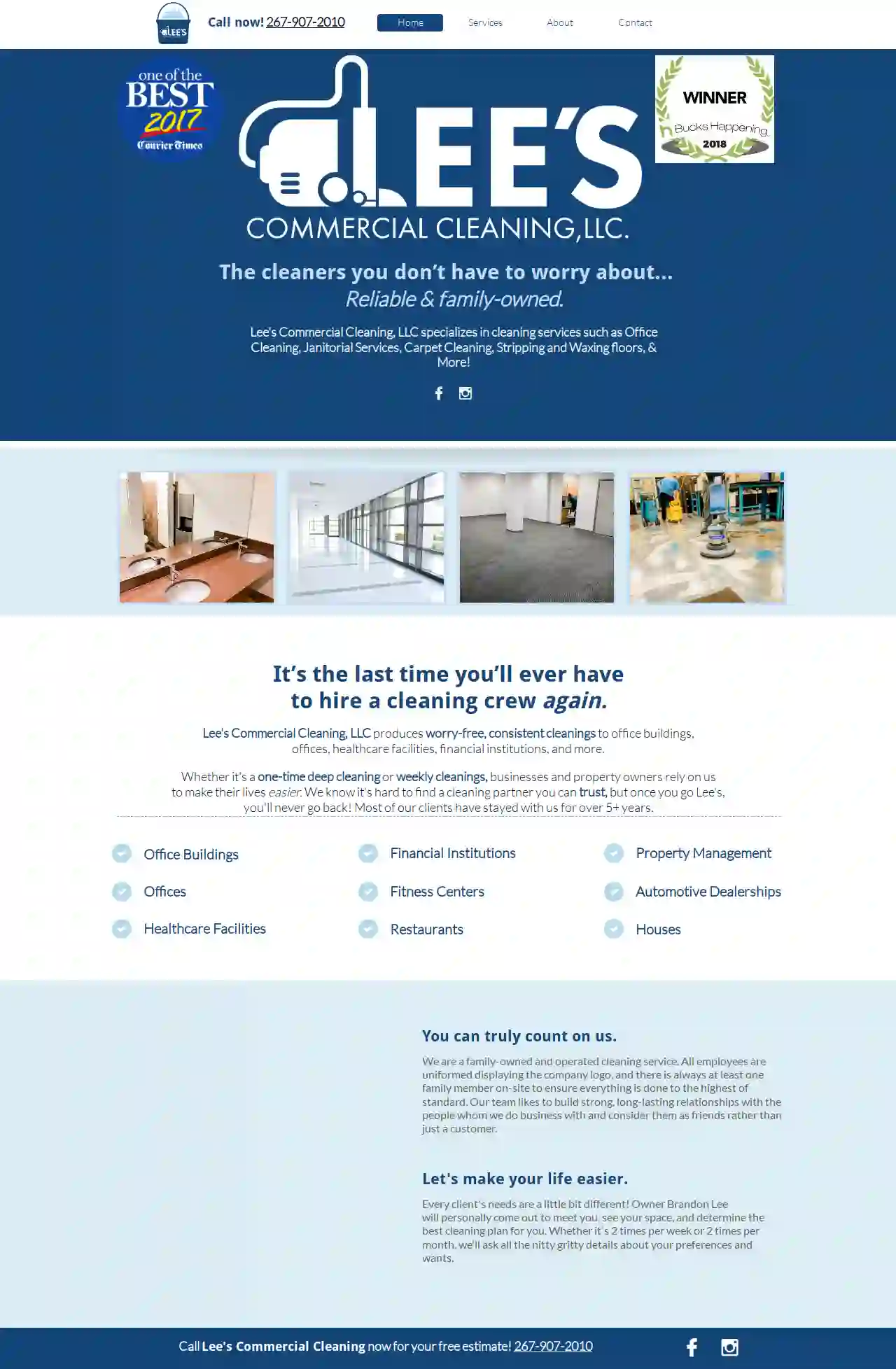Commercial Cleaning Jim Thorpe
Find the best Commercial Cleaning Services in Jim Thorpe
Get 3 FREE Business Cleaning quotes for your project today! Compare profiles, reviews, accreditations, portfolio, etc... and choose the best service.

A2Z Cleaning Services LLC
52 reviewsPhiladelphia, USA2Z Cleaning Services is a dedicated cleaning company that aims to provide top-notch cleaning solutions to its clients. With a strong commitment to quality and customer satisfaction, the team at A2Z Cleaning Services strives to ensure that every client's needs are met with professionalism and efficiency. Their mission is to deliver exceptional cleaning services that leave homes and offices sparkling clean and hygienic. Unfortunately, the website is currently offline, and more detailed information about their history, team, and services could not be extracted.
- Services
- Why Us?
Get Quote
Jay's janitorial service llc
513 reviewsPhiladelphia, US- Services
- Why Us?
- Gallery
Get Quote
Prime Cleaning Services
4.611 reviewsYork, US- Services
- Why Us?
- Gallery
Get Quote
Spotless Commercial Cleaning, LLC
510 reviewsPhiladelphia, US- Services
- Why Us?
- Gallery
Get Quote
Universal Scrubbers
54 reviewsBala Cynwyd, Pa, 2 Bala Plaza, Suite 300, 19004, USUniversal Scrubbers LLC offers professional residential and turnover cleaning services. With a dedicated team, they provide comprehensive solutions for deep cleaning, home cleaning for loved ones, move-in/move-out cleaning, and post-construction cleaning. Their mission is to create clean, beautiful, and memorable spaces.
- Services
- Why Us?
- Accreditations
- Our Team
- Testimonials
- Gallery
Get Quote
ServiceMaster TBS - Philadelphia
57 reviewsPhiladelphia, US- Services
- Why Us?
- Gallery
Get Quote
CNS Cleaning Company
4.9133 reviewsPhiladelphia, US- Services
- Why Us?
- Gallery
Get Quote
Lee's Commercial Cleaning LLC
59 reviews123 Main St, Ellicott City, 21093, USAt Lee's Cleaning Co., we pride ourselves on being a family-owned and operated business that has been serving the community for over 20 years. Our mission is to provide top-notch cleaning services that exceed our customers' expectations. We take pride in our work and strive to build long-lasting relationships with our clients. Our team of experienced professionals is dedicated to providing exceptional service, ensuring that your home or office is cleaned to perfection. We understand that every client has unique needs, which is why we offer customized cleaning solutions tailored to fit your specific requirements. From one-time deep cleans to regular maintenance cleanings, we've got you covered. Our state-of-the-art equipment and eco-friendly products ensure a safe and healthy environment for you and your family.
- Services
- Why Us?
- Accreditations
- Testimonials
Get Quote
Team Clean
4.248 reviewsPhiladelphia, US- Services
- Why Us?
- Gallery
Get Quote- Ge
General Cleaning Services LLC
57 reviewsErie, US- Services
- Why Us?
Get Quote
Over 60,241+ Cleaning Contractors registered
Our cleaning service providers operate in Jim Thorpe and surroundings!
CleaningMatch has curated and vetted Top Janitorial Businesses in Jim Thorpe. Find a top & trustworthy contractor today.
Frequently Asked Questions About Commercial Cleaning
- Healthier work environment: Professional cleaning reduces germs and allergens, promoting employee well-being.
- Improved employee morale: A clean and organized workspace can boost productivity and job satisfaction.
- Enhanced business image: A spotless office makes a positive impression on clients and visitors.
- Time savings: Focus on your core business activities while professionals handle cleaning.
- Increased productivity: Employees in a clean environment are often more efficient.
- Reduced sick days: A healthier workspace can contribute to lower absenteeism.
- Compliance with regulations: Professional cleaners ensure your facility meets hygiene standards.
- Industry: A restaurant will likely need more frequent cleaning than an office.
- Foot traffic: High-traffic businesses generally require more frequent cleaning.
- Specific needs: Businesses with strict hygiene standards may need daily cleaning.
- Number of employees: More employees often mean more frequent cleaning needs.
- Nature of your work: Some businesses generate more mess than others.
- Peak seasons/events: You might need additional cleaning during busy periods.
- Using the wrong cleaning products: Harsh chemicals can damage certain surfaces. Choose appropriate cleaners.
- Neglecting hard-to-reach areas: Thoroughly clean behind furniture, under desks, and other often-missed spots.
- Improper disinfection protocols: Follow proper dwell times for disinfectants to effectively kill germs.
- Poor communication: Clearly communicate expectations and provide feedback to your cleaning service.
- Lack of inspections: Regularly inspect the work to ensure standards are met.
- Size of your space: Larger areas naturally cost more to clean.
- Cleaning frequency: More frequent cleanings (e.g., daily vs. weekly) will impact the price.
- Specific services required: Basic cleaning is less expensive than specialized services like carpet or window cleaning.
- Your location: Cleaning costs can differ based on regional labor rates and market competition.
- Type of business: Some industries have unique cleaning requirements that may affect pricing.
- Level of cleaning: Light cleaning is generally more affordable than deep cleaning or specialized sanitization.
What are the advantages of using a professional cleaning service?
What's the recommended cleaning frequency for my business?
What are some common commercial cleaning mistakes to avoid?
How much do commercial cleaning services cost in the USA?
What are the advantages of using a professional cleaning service?
- Healthier work environment: Professional cleaning reduces germs and allergens, promoting employee well-being.
- Improved employee morale: A clean and organized workspace can boost productivity and job satisfaction.
- Enhanced business image: A spotless office makes a positive impression on clients and visitors.
- Time savings: Focus on your core business activities while professionals handle cleaning.
- Increased productivity: Employees in a clean environment are often more efficient.
- Reduced sick days: A healthier workspace can contribute to lower absenteeism.
- Compliance with regulations: Professional cleaners ensure your facility meets hygiene standards.
What's the recommended cleaning frequency for my business?
- Industry: A restaurant will likely need more frequent cleaning than an office.
- Foot traffic: High-traffic businesses generally require more frequent cleaning.
- Specific needs: Businesses with strict hygiene standards may need daily cleaning.
- Number of employees: More employees often mean more frequent cleaning needs.
- Nature of your work: Some businesses generate more mess than others.
- Peak seasons/events: You might need additional cleaning during busy periods.
What are some common commercial cleaning mistakes to avoid?
- Using the wrong cleaning products: Harsh chemicals can damage certain surfaces. Choose appropriate cleaners.
- Neglecting hard-to-reach areas: Thoroughly clean behind furniture, under desks, and other often-missed spots.
- Improper disinfection protocols: Follow proper dwell times for disinfectants to effectively kill germs.
- Poor communication: Clearly communicate expectations and provide feedback to your cleaning service.
- Lack of inspections: Regularly inspect the work to ensure standards are met.
How much do commercial cleaning services cost in the USA?
- Size of your space: Larger areas naturally cost more to clean.
- Cleaning frequency: More frequent cleanings (e.g., daily vs. weekly) will impact the price.
- Specific services required: Basic cleaning is less expensive than specialized services like carpet or window cleaning.
- Your location: Cleaning costs can differ based on regional labor rates and market competition.
- Type of business: Some industries have unique cleaning requirements that may affect pricing.
- Level of cleaning: Light cleaning is generally more affordable than deep cleaning or specialized sanitization.